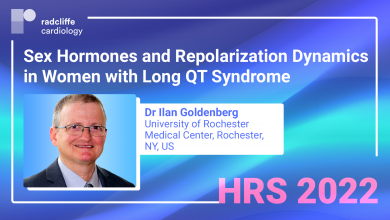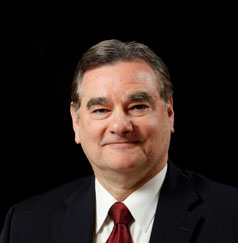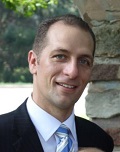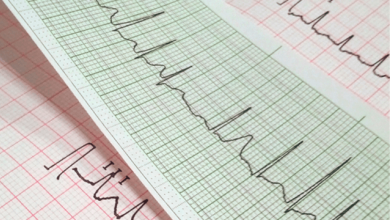Search results
Author(s):
Frédéric Schnell
,
Nathalie Behar
,
François Carré
Added:
3 years ago
Congenital long QT syndrome (LQTS) is an inherited cardiac ion channelopathy characterised by a variable degree of QT interval prolongation on ECG and an increased susceptibility to life-threatening ventricular arrhythmias (torsades de pointes and ventricular fibrillation) in the absence of morphological cardiac disease.
LQTS is estimated to affect one in 2,000 individuals.1 It is usually…
View more
Long QT Syndrome Modelling
Author(s):
Luca Sala
,
Massimiliano Gnecchi
,
Peter J Schwartz
Added:
3 years ago
Article
Author(s):
Nabil El-Sherif
,
Gioia Turitto
,
Mohamed Boutjdir
Added:
3 years ago
Since its initial description by Jervell and Lange-Nielsen in 1957,1 congenital long QT syndrome (LQTS) has been the most investigated cardiac ion channelopathy. A prolonged QT interval on the surface ECG is a surrogate measure of prolonged ventricular action potential duration (APD).
Congenital as well as acquired alterations in certain cardiac ion channels can affect their currents in such a…
View more
Author(s):
Ilan Goldenberg
Added:
1 year ago
In this video from HRS 2022, Dr Ilan Goldenberg (University of Rochester Medical Center, Rochester, NY, US) joins us to discuss the findings of a recent study which aimed to evaluate the effect of sex hormones during the menstrual cycle on repolarisation dynamics in women with congenital and drug-induced long QT syndrome.
Discussion points:
1. Aim, and endpoints
2. Study design
3. Key findings
4…
View more
Warren Jackman
Author
Phillip Cuculich
Author
Author(s):
Antonio Zaza
,
Carlotta Ronchi
,
Gabriella Malfatto
Added:
3 years ago
The incidence of ventricular arrhythmias is often related, within an individual, to the rate of their underlying sinus rhythm (heart rate). The direction of this relationship is generally considered to entail some prognostic significance: whereas ectopic activity suppressed by tachycardia is assumed to be benign, an arrhythmia enhanced by tachycardia is regarded with more concern. Is this…
View more
Author(s):
Neil T Srinivasan
,
Richard Schilling
Added:
3 years ago
An estimated 180,000–300,000 sudden cardiac deaths (SCD) occur in the US annually.1,2 Worldwide, sudden and unexpected cardiac death is the most common cause of death,2 accounting for 17 million deaths every year with SCD accounting for 25% of these. The accepted definition of SCD is death that occurs within one hour of onset of symptoms in witnessed cases, and within 24 hours of last being seen…
View more
Author(s):
Greg Mellor
,
Elijah R Behr
Added:
3 years ago
Sudden unexplained death syndrome (SUDS)1 is rare in the young but when it occurs it is devastating for family and friends, and affects whole communities. That it can affect fit, athletic individuals and may be related to competitive sports only adds to the sense of incomprehension and injustice felt by wider society. In comparison with the older population, where sudden death is more common and…
View more
Author(s):
Serge Sicouri
,
Charles Antzelevitch
Added:
3 years ago
The link between sudden unexplained death in individuals with mental health problems who are administered antipsychotic drugs has been recognised for over a century.1 A clear relationship has emerged over the past 25 years between antipsychotic drugs, prolongation of the QT interval of the ECG, atypical polymorphic tachycardia known as torsade de pointes (TdP) and sudden cardiac death (SCD). A…
View more














